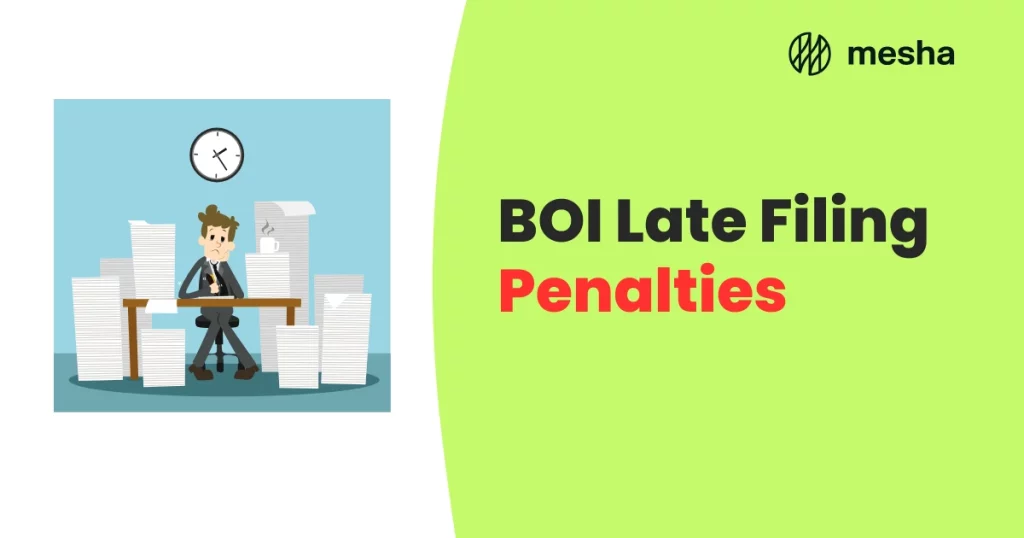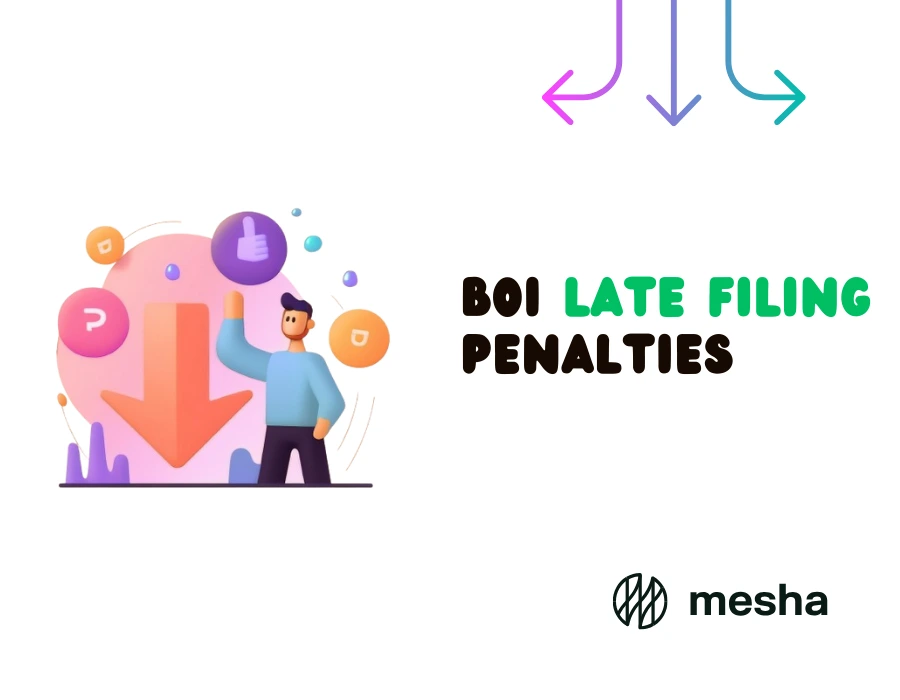Understanding BOI Late Filing Penalties

BOI reports are crucial for businesses. The Corporate Transparency Act mandates these reports to boost transparency and stop illegal activities like money laundering.
Table of Contents
Why BOI Filing Matters
Certain LLCs, corporations, and partnerships must file BOI reports. Skipping this requirement can result in big penalties. FinCEN oversees this information.
Why does this matter for your business?
- Mandatory Compliance: You must disclose ownership details if you’re not exempt.
- Avoid Penalties: Not filing can lead to steep fines and legal trouble.
- Boost Transparency: It promotes honest and ethical business practices.
- Fight Illegal Activities: It helps stop fraud and money laundering by revealing true ownership.
Meeting your reporting duties fosters responsible governance and transparency. Stay current with BOI requirements to shield your business from penalties.
Understanding BOI Late Filing Penalties

Late filing of BOI reports can lead to serious penalties. It’s crucial to understand these to avoid unnecessary trouble.
- Civil Penalties: Missing the filing deadline can result in fines of up to $591 per day. These can quickly add up, putting a strain on your financial resources.
- Criminal Penalties: Willful non-compliance can lead to fines up to $10,000. There’s also the risk of imprisonment for up to two years. This emphasizes the seriousness of timely compliance.
Failing to file on time isn’t just about the fines. There are broader implications:
- Legal Risks: Non-compliance can lead to legal challenges, consuming time and resources.
- Financial Risks: Accumulating penalties can impact cash flow, affecting your business operations. For strategies on maintaining healthy cash flow, explore how to ensure clients pay faster, which can help reduce financial stress.
- Reputational Risks: Being known for non-compliance can damage your reputation, affecting client trust and relationships.
Staying compliant protects your business from these risks. It’s about maintaining a strong, trustworthy presence in the industry.
Staying Compliant with BOI Deadlines
Staying on top of BOI filing deadlines is essential. Missing these can cost you dearly. Let’s break down what you need to know.
Entities registered before January 1, 2024, must file by January 1, 2025. If you register between January 1, 2024, and January 1, 2025, you have 90 days to file. After January 1, 2025, new entities have 30 days from formation.
Now, how can you manage this?
- Professional Help: Consider using professional services to ensure accurate and timely filings.
- Stay Updated: Keep an eye on regulatory changes. This helps you stay compliant with the latest rules.
- Automated Tools: Use automated tools to track deadlines and manage your filing obligations efficiently. For instance, exploring top practice management software options for accountants can enhance workflow efficiency and client communication.
Accurate and current ownership information is key. Ensure all details are up-to-date to avoid issues.
Maintaining compliance isn’t just about avoiding penalties. It builds trust and supports responsible governance. By staying informed and organized, you protect your business and maintain a solid reputation.
Key Takeaways on BOI Penalties
BOI reports play a crucial role in maintaining transparency and legal compliance. Missing filing deadlines can lead to significant penalties, both financially and legally. It’s vital for businesses to understand these requirements and take necessary steps to comply.
Here’s what you need to keep in mind:
- Understand Obligations: Know the specific BOI requirements for your business to avoid surprises.
- Stay Proactive: Use resources like professional help and automated tools to keep track of deadlines.
- Be Prepared: If a deadline is missed, gather necessary information and contact FinCEN promptly to minimize penalties.
- Maintain Accurate Records: Ensure your ownership information is current and correct.
Staying informed and organized can shield your business from costly penalties. It also supports smoother operations and helps maintain a positive reputation. Prioritizing compliance fosters trust and responsible governance, ensuring your business thrives in a transparent environment.


